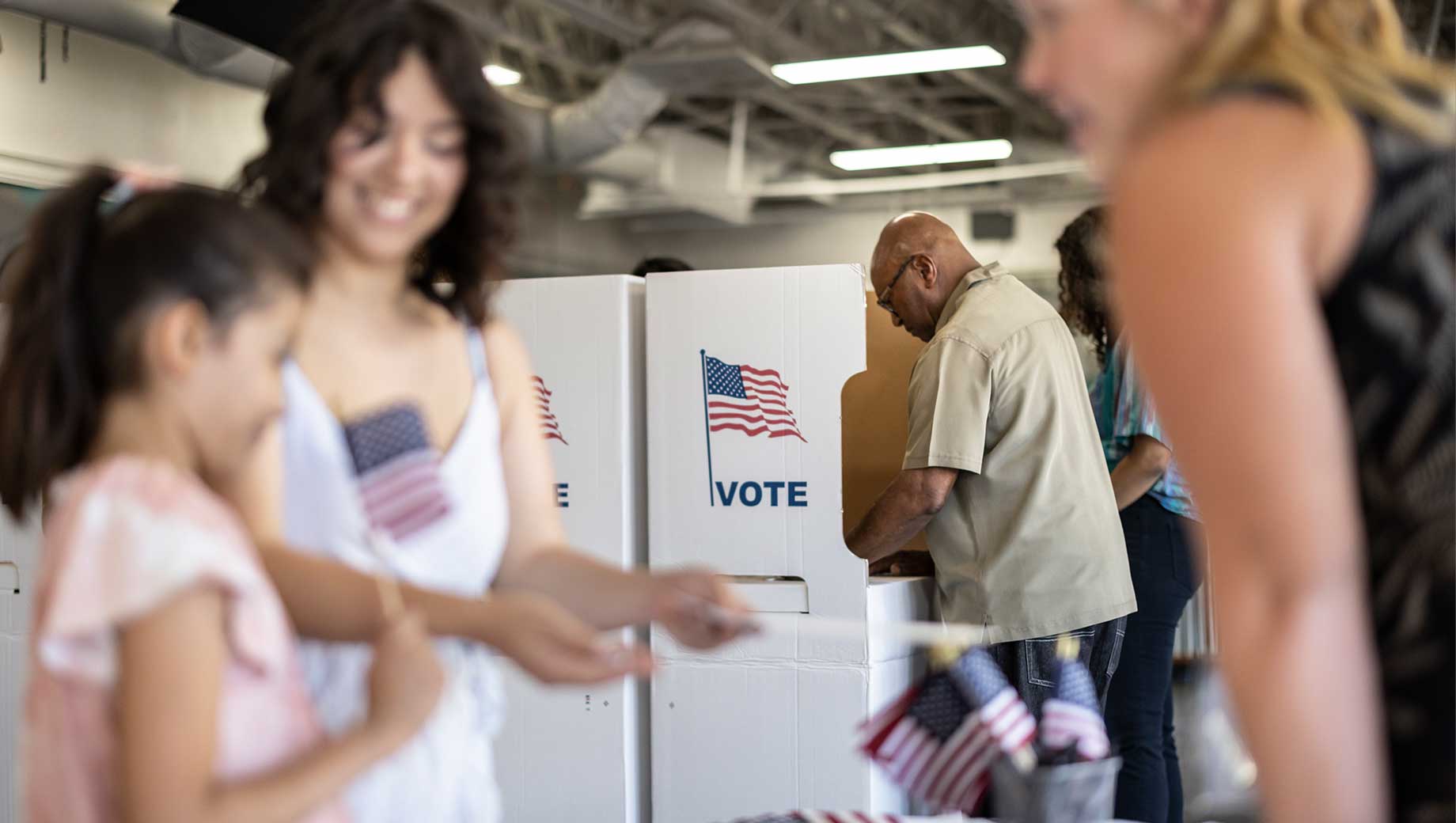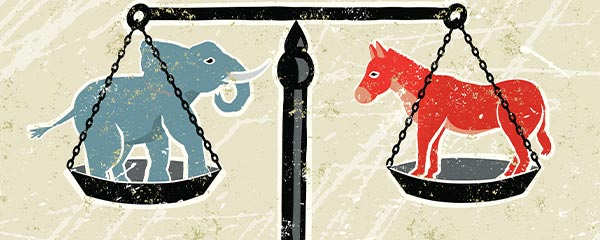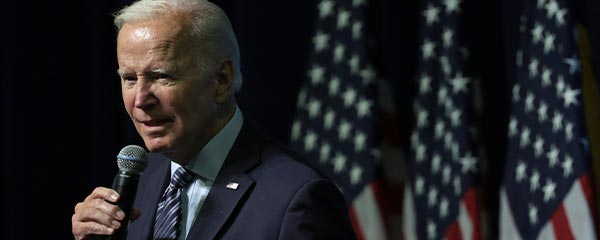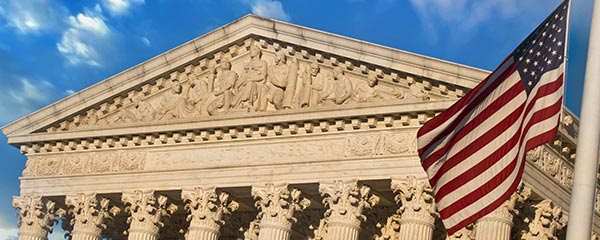Story Highlights
- Support for having a third major party is down from high in 2021
- At 56%, current desire for third party is near the long-term average
- Independents' third-party support is steady near their all-time high
WASHINGTON, D.C. -- After reaching a high of 62% at the start of 2021, the percentage of Americans believing the existing political parties "do such a poor job that a third major party is needed" has returned to a more typical 56%.
At the same time, four in 10 Americans do not see the need for a third party, agreeing that "the Republican and Democratic parties do an adequate job of representing the American people."
The 56% of Americans who currently believe the country would benefit from a third major party roughly matches the average 55% holding this view across Gallup's trend, since 2003. Support was much lower in that initial measure (at 40%) than it has been in most years since.
The perceived need for a third major party has also tended to be slightly lower in presidential and midterm election years (averaging 54% since 2006) than in nonelection years (57%). The election effect was especially pronounced in 2008 and 2012, when third-party support dropped nine or 10 percentage points from the year prior, into the mid-40s, although the reason for that is not clear.
Since then, the dampening of third-party demand during election years has seemingly persisted, with support for a third party being two to four points lower in 2014, 2016, 2018 and 2022 than in the immediately preceding years.
Independents Maintain Above-Average Third-Party Preference
Desire for a third major party has always been much higher among political independents than either Democrats or Republicans, and that continues in 2022. However, after varying between 2003 and 2012, independents' support has been consistently high over the past decade, not falling below 70% since 2013. And it has been especially high, near 75%, since September 2021.
Republicans and Democrats have expressed relatively similar levels of support for third parties over the years. However, in two periods when Republican presidents were in power, Democrats' support for a third party was significantly higher than Republicans'. These 12-point or greater party gaps -- the result of depressed Republican interest in a third party and heightened Democratic interest -- occurred between 2003 and 2007 during George W. Bush's presidency and again in 2018 and 2020 during Donald Trump's.
The reverse pattern, with Republicans significantly more eager than Democrats for a third party during Democratic presidencies, was seen in 2011, 2016 and early 2021.
Independents who lean toward either the Republican or Democratic Party show a desire for a third party that hews closer to their independent party identification than to their party leaning. According to combined 2021-2022 data, 76% of independents who lean toward the Republican Party and 76% of independents who lean toward the Democratic Party would like there to be a third major party in the U.S.
Moderate/Liberal Republicans Increasingly Favor a Third Party
Further differences in support for a third party are seen when combining respondents' party preference and their political ideology.
According to combined 2021-2022 data that span Biden's term thus far, large majorities of independents (74%) and moderate/liberal Republicans (60%) are in favor of having a third major party. Support falls to a bare majority of liberal Democrats (51%), followed by less than half of conservative Republicans (45%) and barely a third of moderate/conservative Democrats (35%). These findings could reveal differences in each group's contentment with their own party's political players, as well as dissatisfaction with the opposing party.
Moderate/Liberal Republicans' broad support for a third major party is especially notable because it is sharply higher than the last time a Democrat (Obama) was in power, as well as 24 points higher than in Gallup's earliest data, from 2003-2008, during the Bush era. Dissatisfaction with former President Trump could be a factor in this group's elevated interest in having a third party. By contrast, conservative Republicans' current desire for a third party roughly matches the level seen under Obama and is just eight points higher than under Bush.
Regardless of their ideology, Democrats' interest in a third party is generally consistent with Gallup findings during the Obama presidency and shows little change when compared with the 2003-2008 Bush-era readings.
Bottom Line
People's belief that the two major parties do such a poor job that a third major political party is needed may stem from dissatisfaction with one or both parties, especially when one's own party does not occupy the White House. It may also reflect people's basic support for the core democratic values of pluralism, participation and freedom. However, it is one thing to want to see a third major party emerge and quite another for people to back such a party in the voting booth. If nothing else, structural barriers in election laws work against third parties' succeeding.
Still, Gallup's third-party data show there is demand across the political spectrum for better leadership that well-conceived third parties may be able to tap into. With moderate/liberal Republicans more supportive of having a third party than they've been historically and second only to independents in this sentiment, third parties with a center-right focus might find the most traction right now. Of course, that insight could quickly become obsolete should a Republican win the presidency in the next election.
To stay up to date with the latest Gallup News insights and updates, follow us on Twitter.
Learn more about how the Gallup Poll Social Series works.




